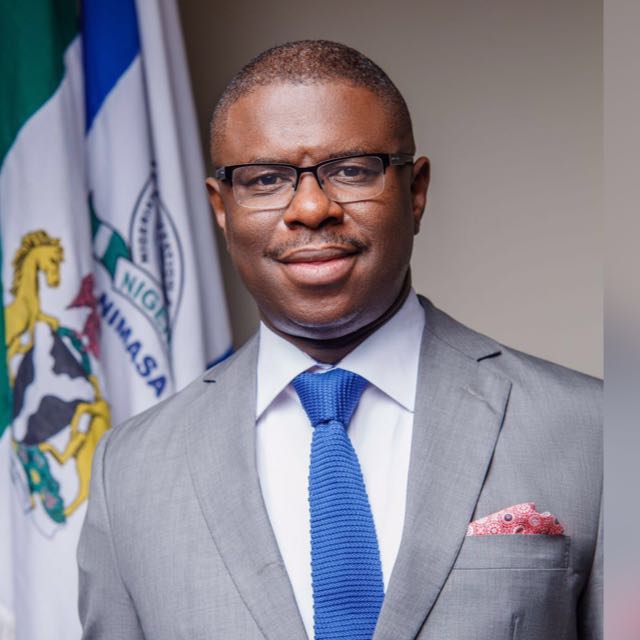in Nigeria
 |
| DG NIMASA, Dr. Dakuku Peterside |
country’s crude oil for export immediately the national fleet comes into
operation, the Director General of the Nigerian Maritime Administration and
Safety Agency (NIMASA), Dr Dakuku Peterside has said.
Dakuku, who was speaking at a media
breakfast meeting on the sideline of the ongoing Nor-Shipping Conference
and Exhibition in Oslo, Norway, said such an outcome would end the capital
flight associated with the present arrangement where Nigeria sells its oil on
free on board basis to customers.
would be owned 49 per cent by a technical partner and the balance of 51 per cent
by Nigerian investors. According to the plan, the Nigerian investors will hold
equity in lots, so there will be no domineering shareholder.
new strategic direction on the blue economy, which is designed to tap its
maritime potentials. He invited local and foreign investors who are interested
in the project to partner with the country.
one of the many potentials in the sector. He said the country was also taking
its maritime security serious and had invested in the acquisition of security
assets to boost the policing of its waters.
helicopter, unmanned air vessels and naval ships. He noted that the assets,
acquired under the ‘Deep Blue Project’, which he calls a homeland security
solution, would be operational by September this year.
tap into the rich potentials of the maritime sector in Nigeria saying the
government has incentivised the sector with offers of tax holidays and
institutional support.
investment-friendly environment with comprehensive maritime security, a robust
financial sector and seven port complexes.
of seaborne trade into West Africa and is endowed with a skilled workforce and
the world’s ninth largest hydrocarbon deposits.
